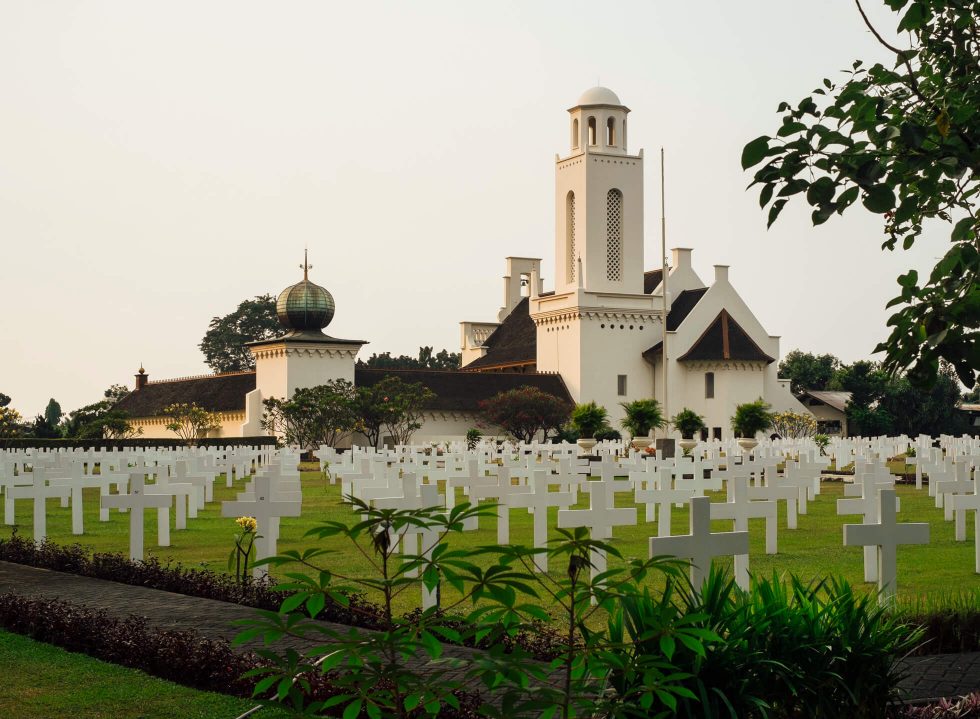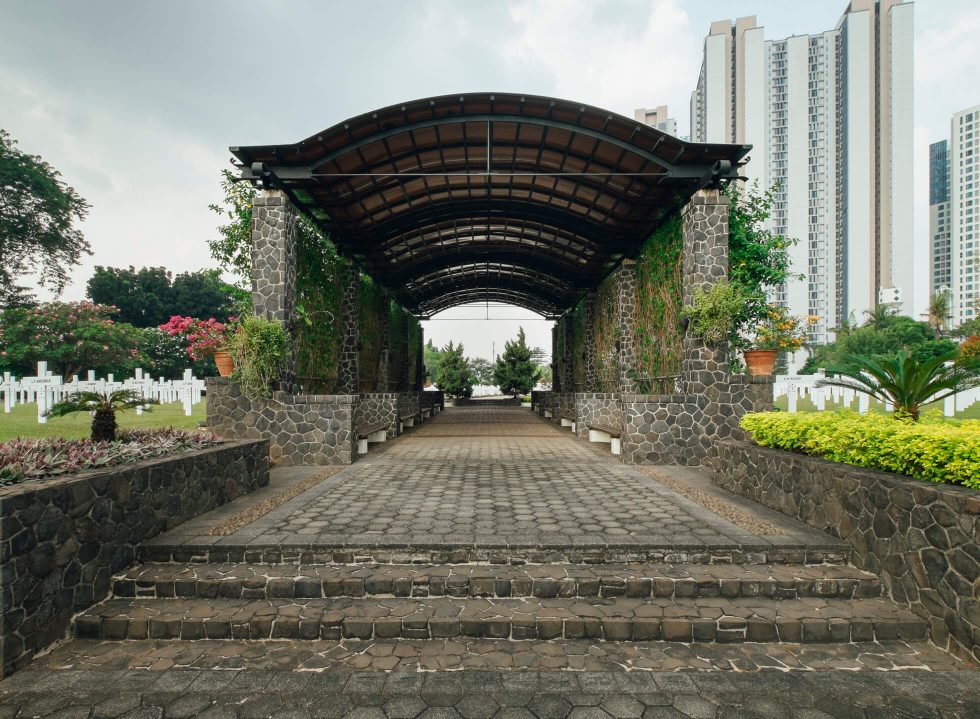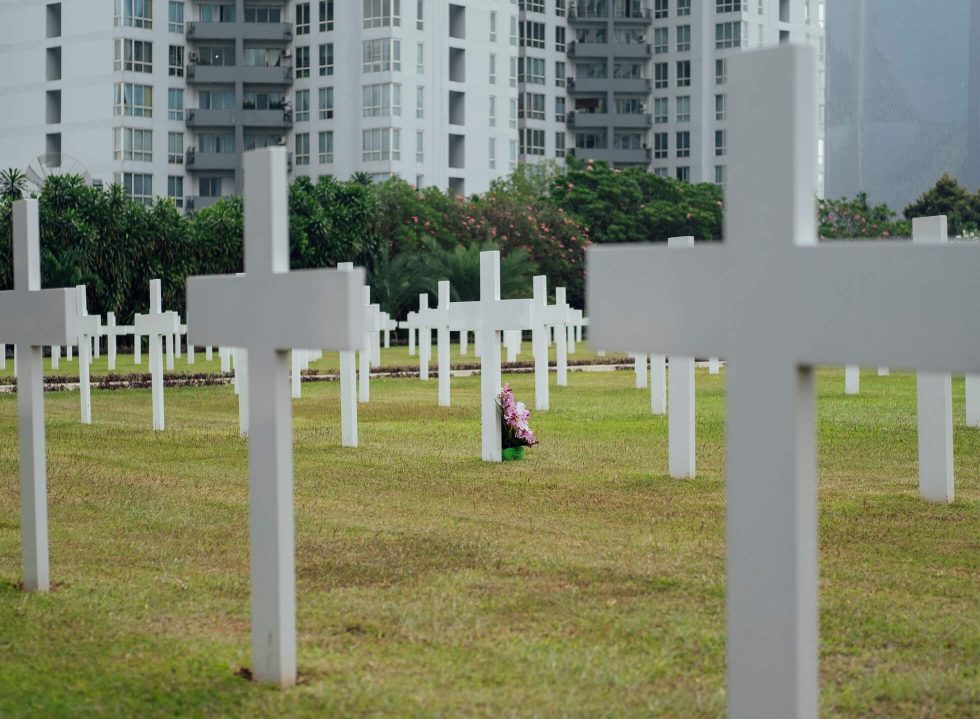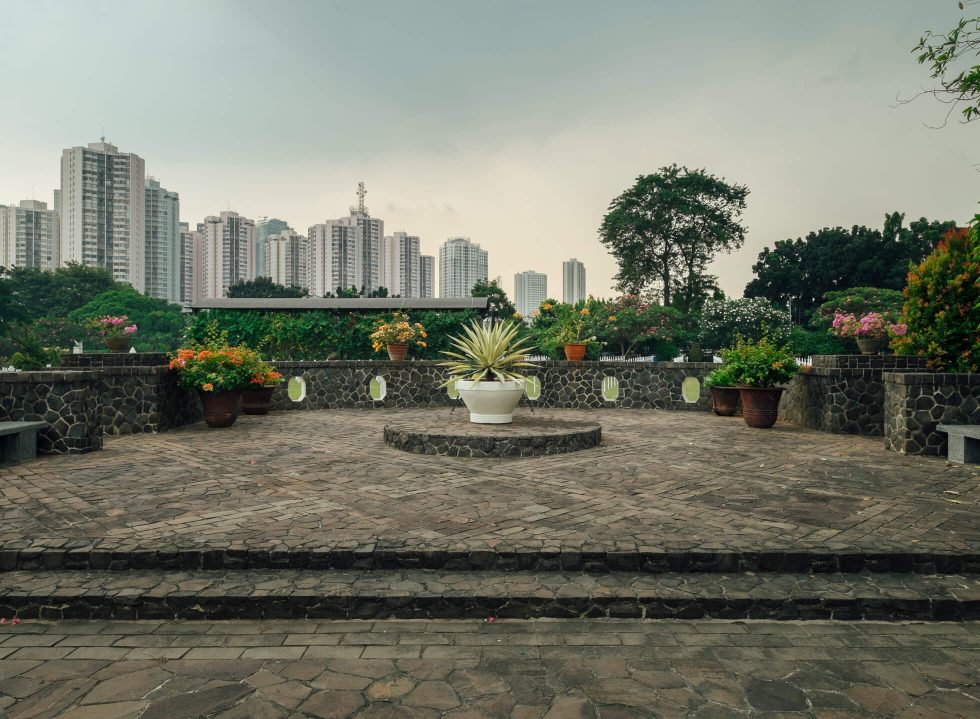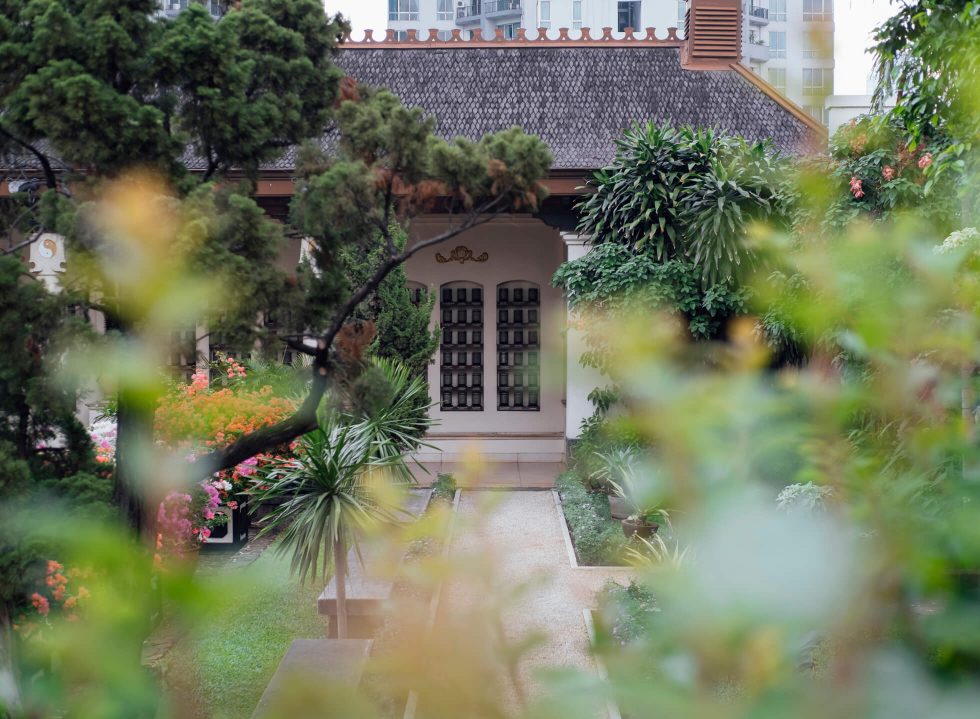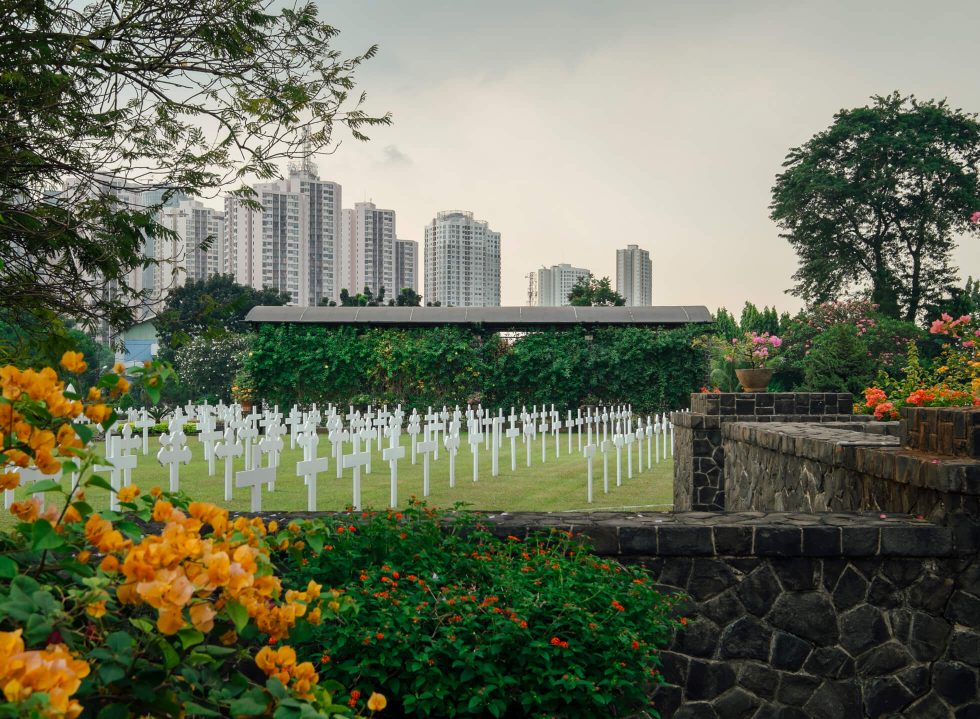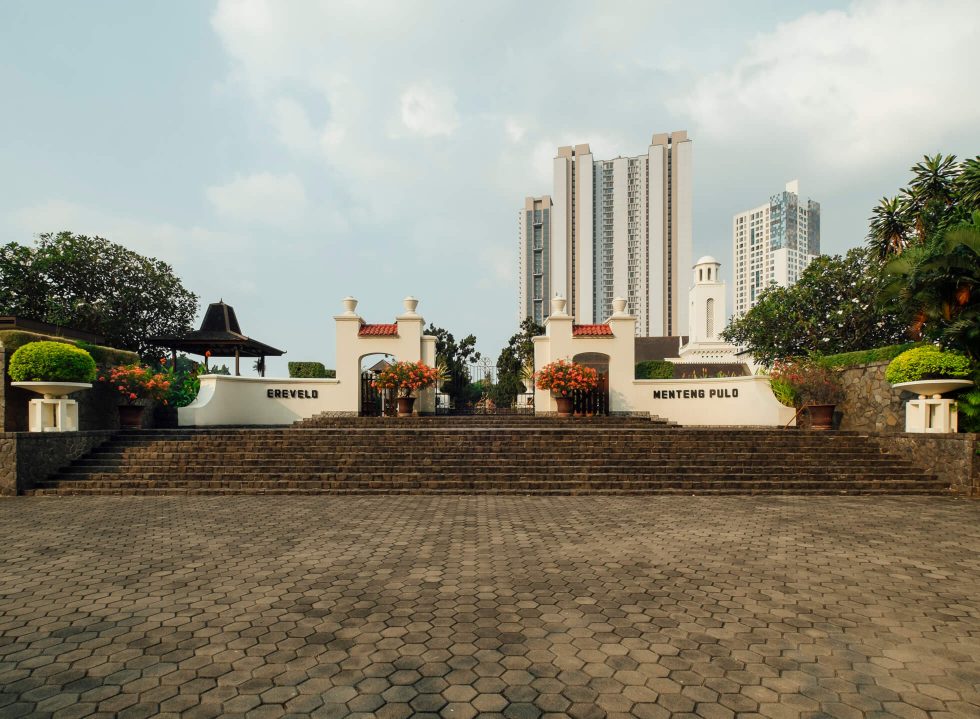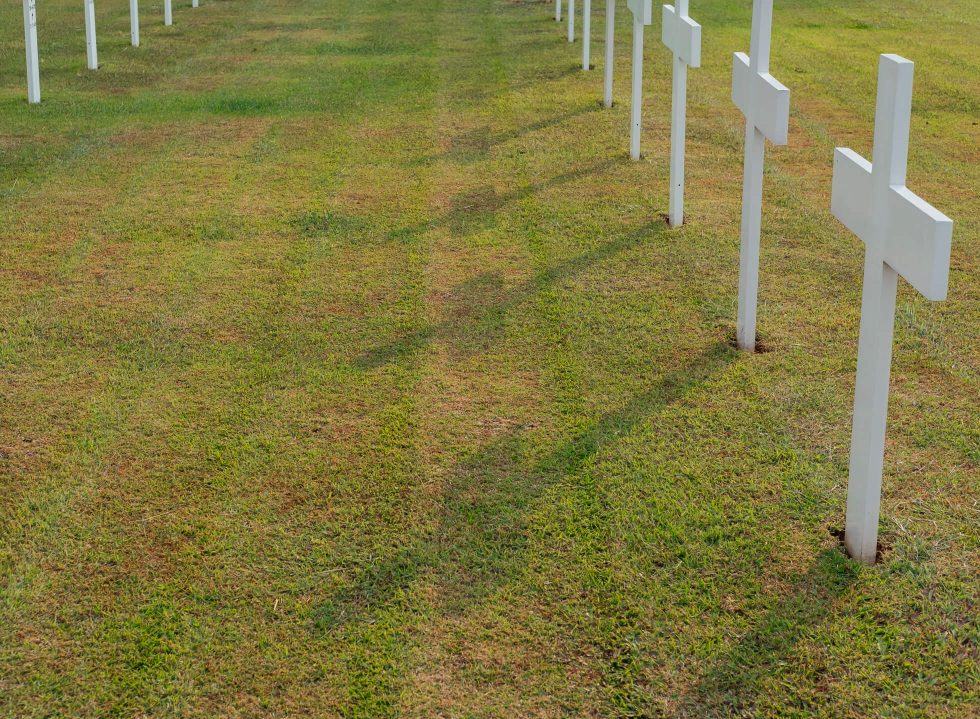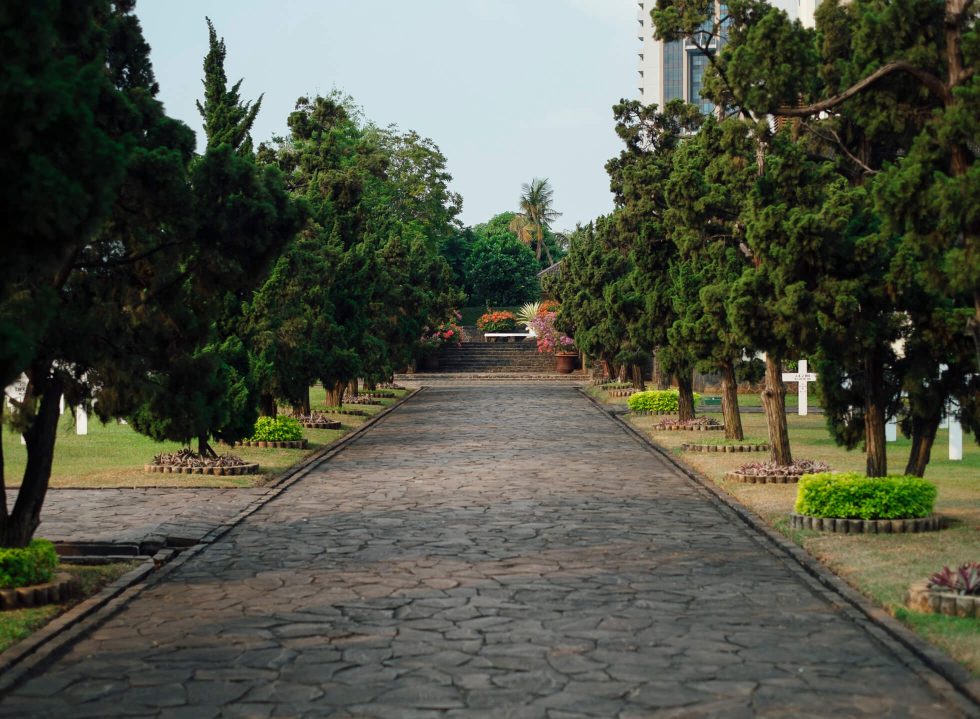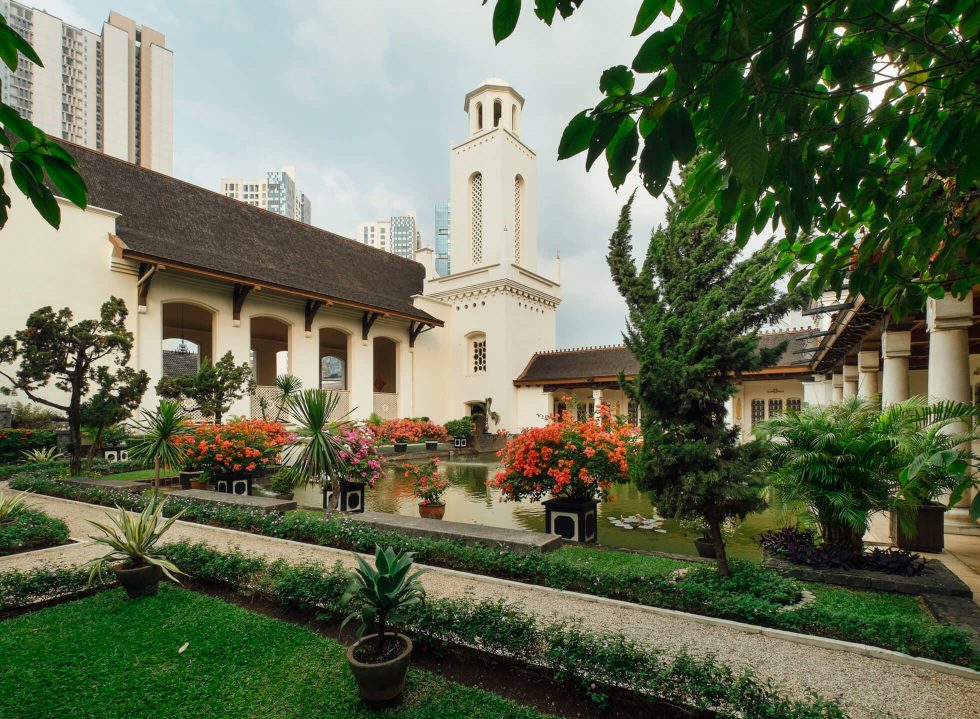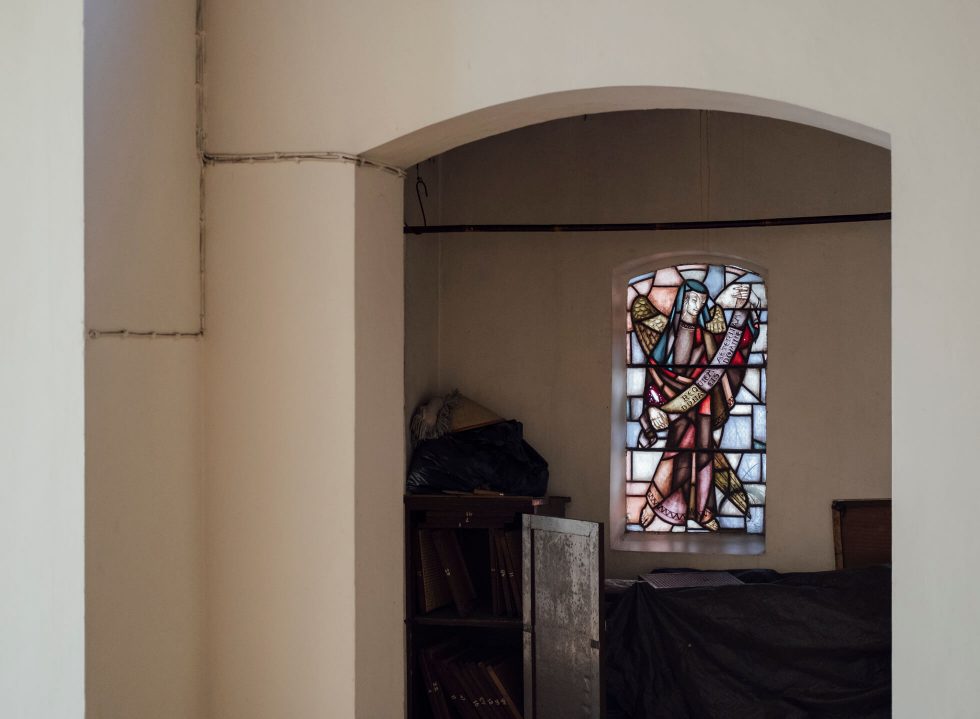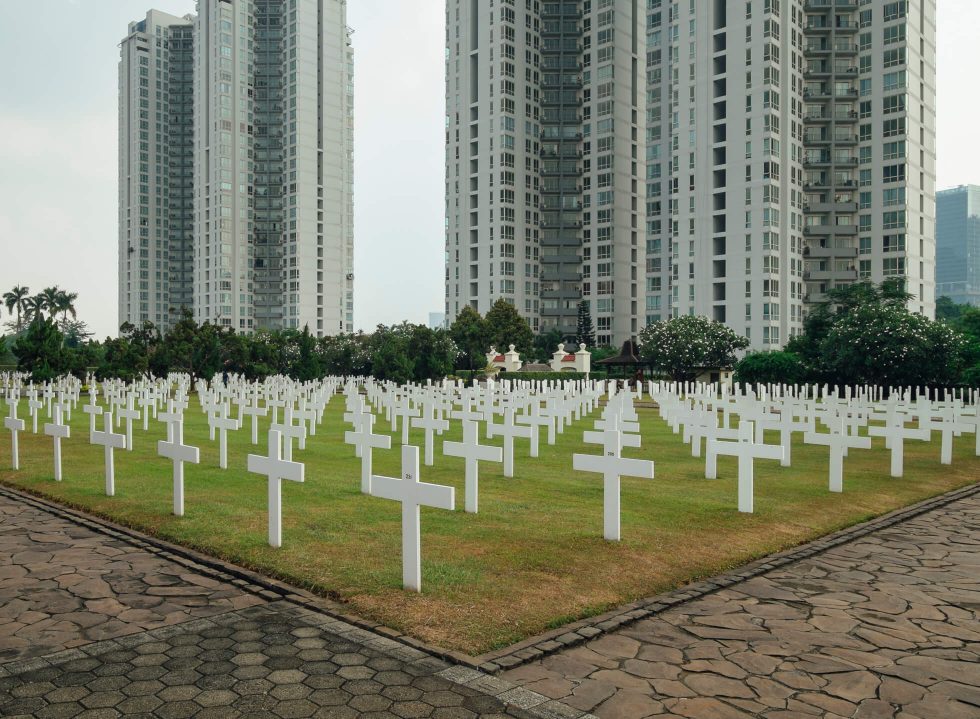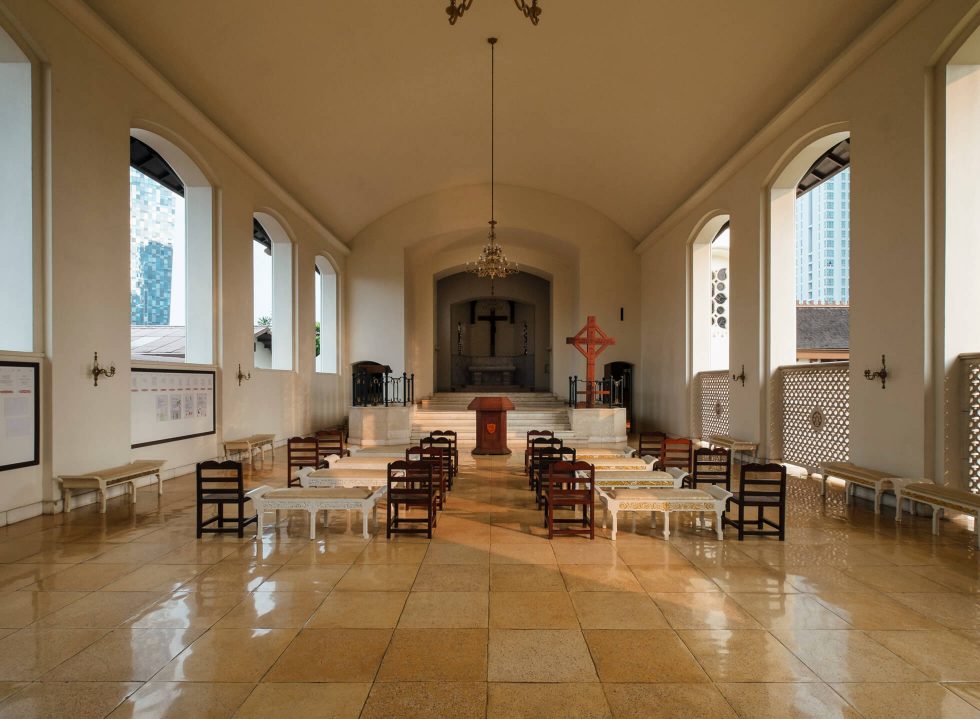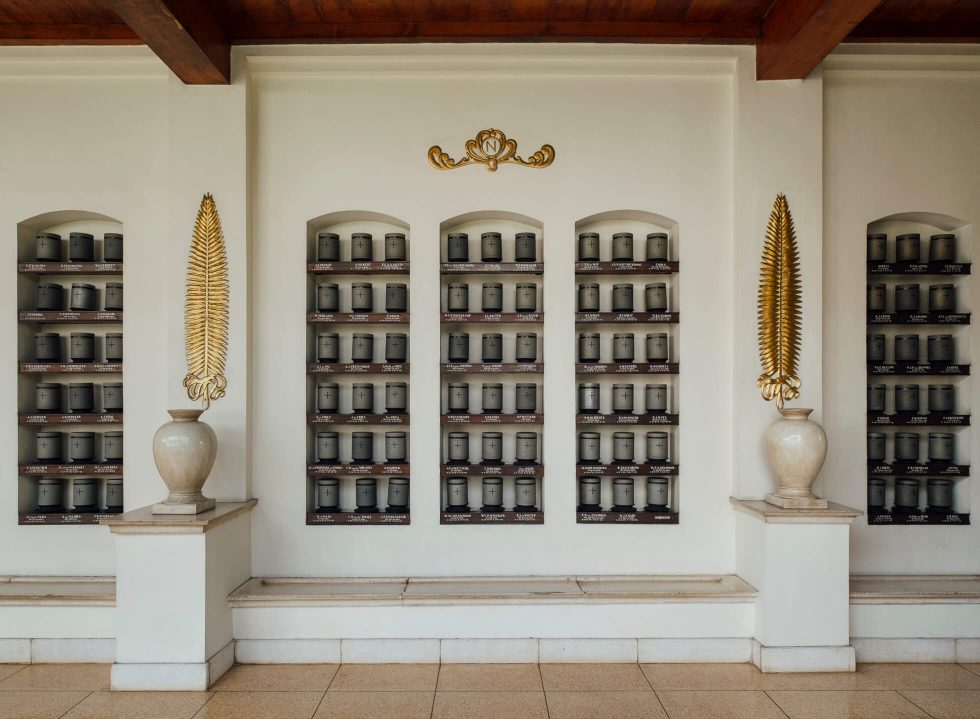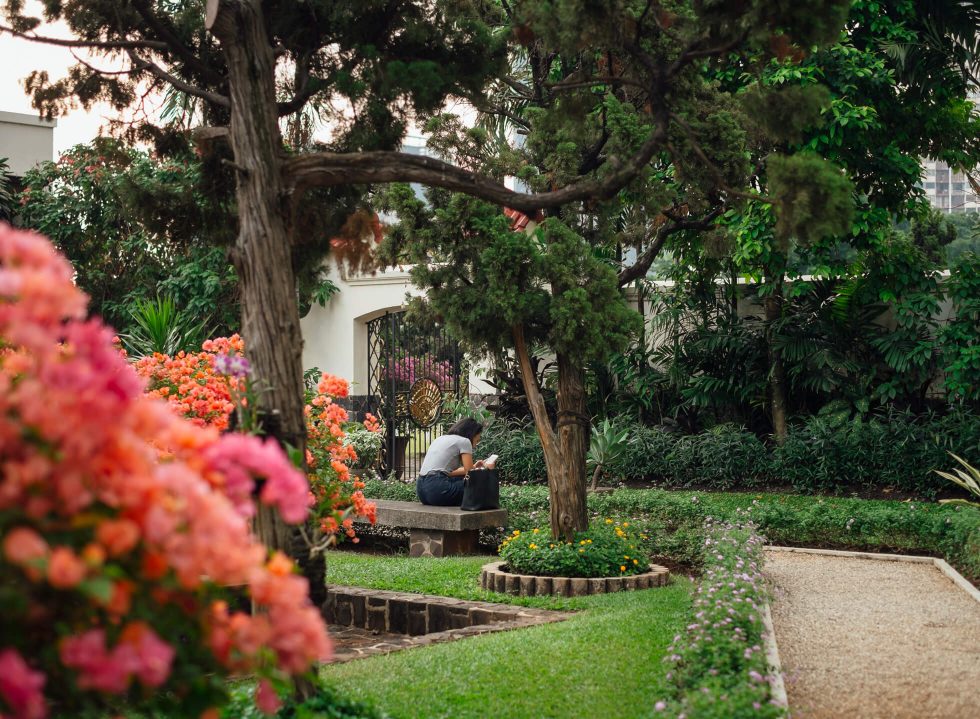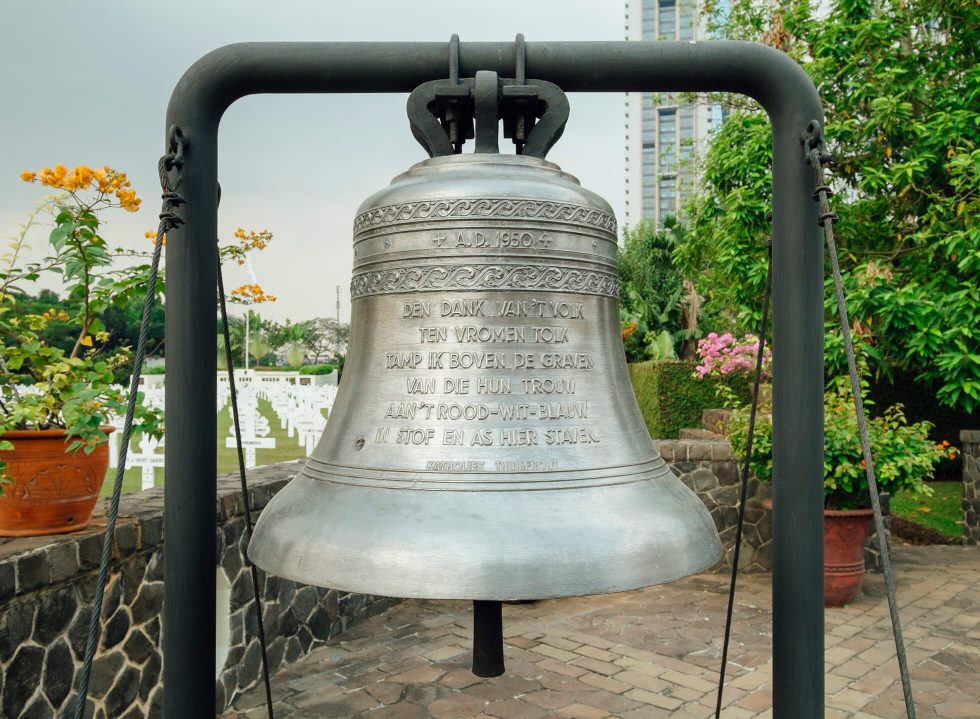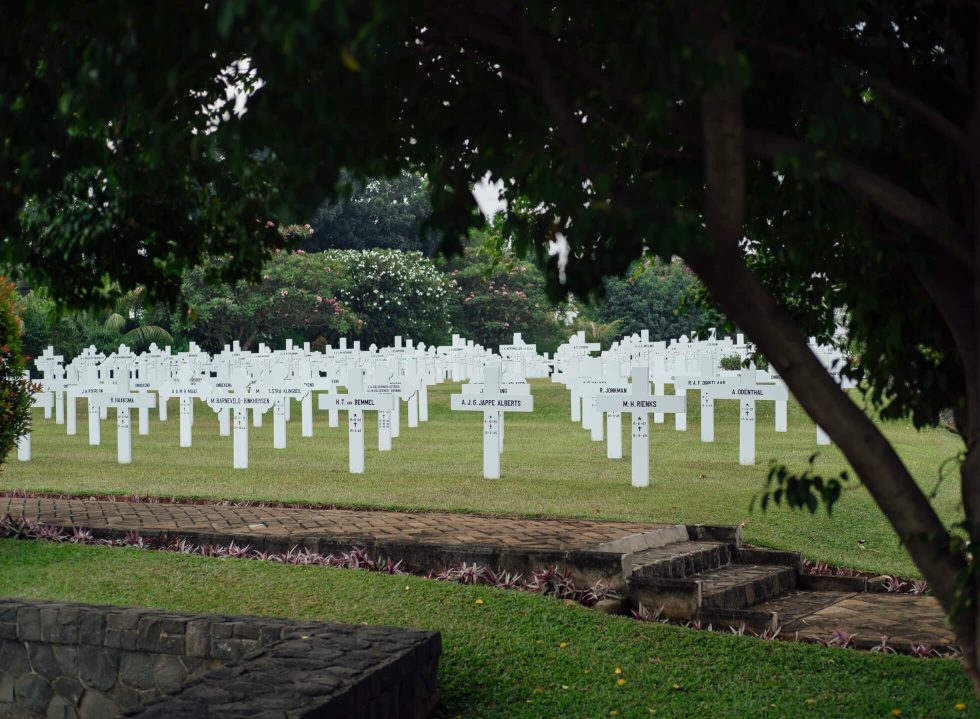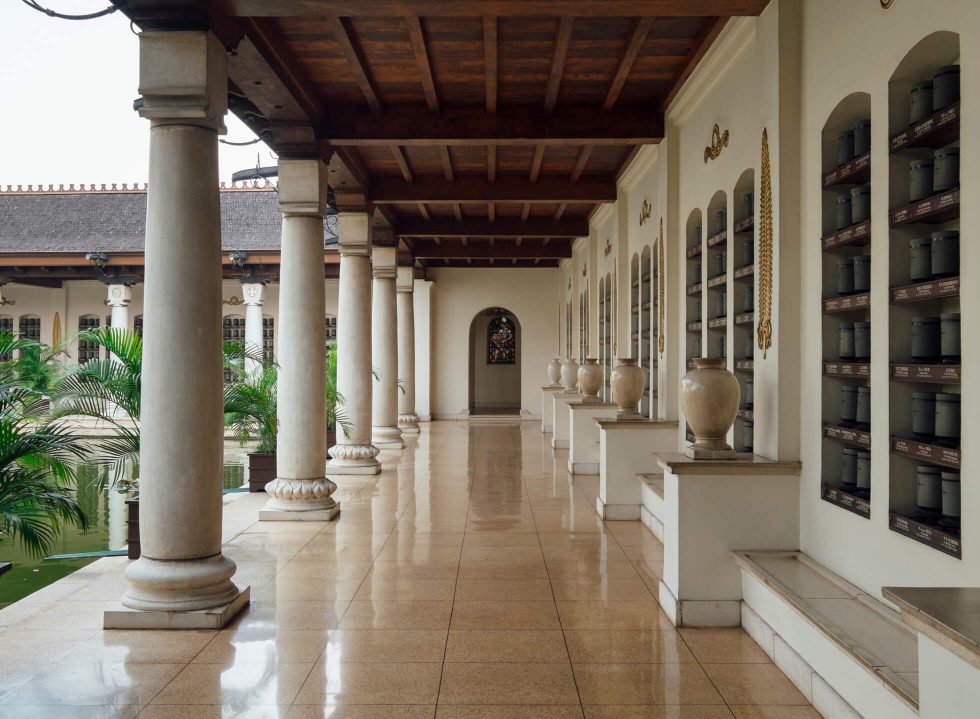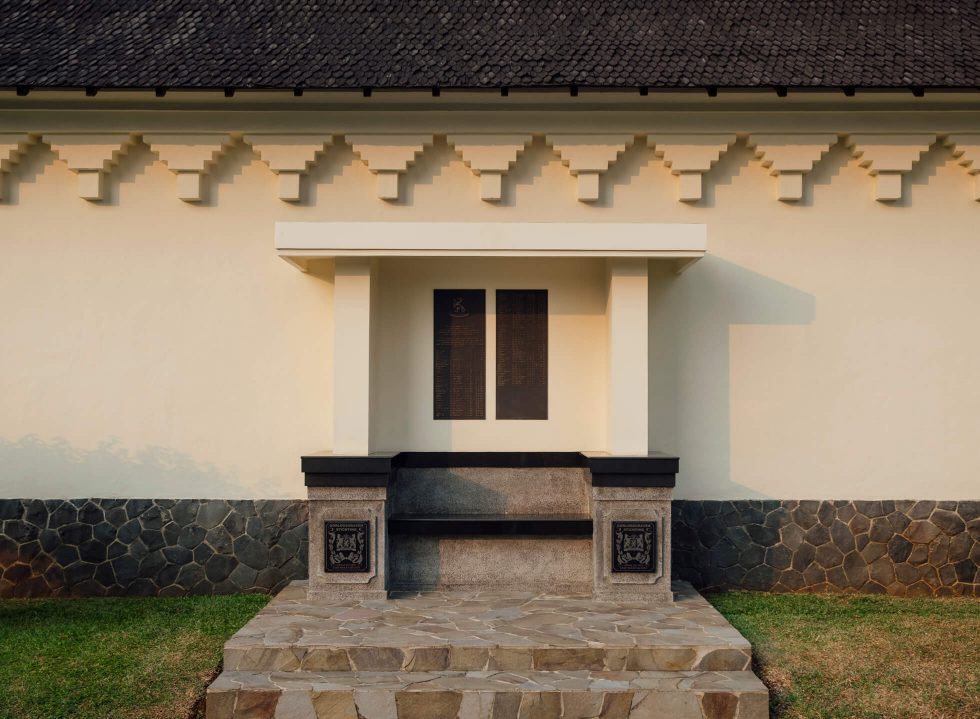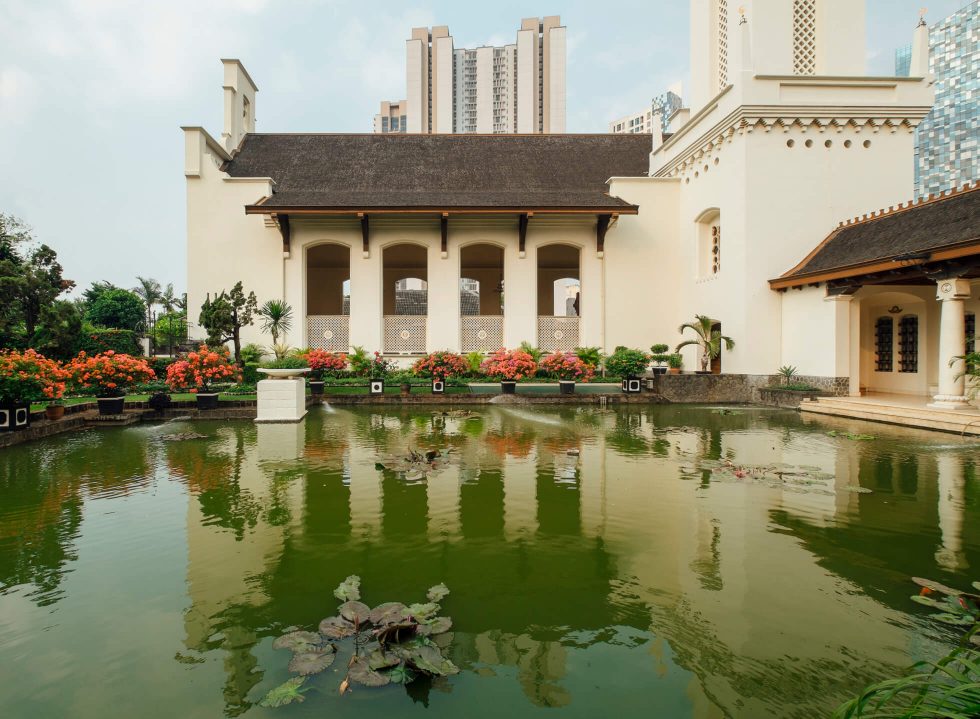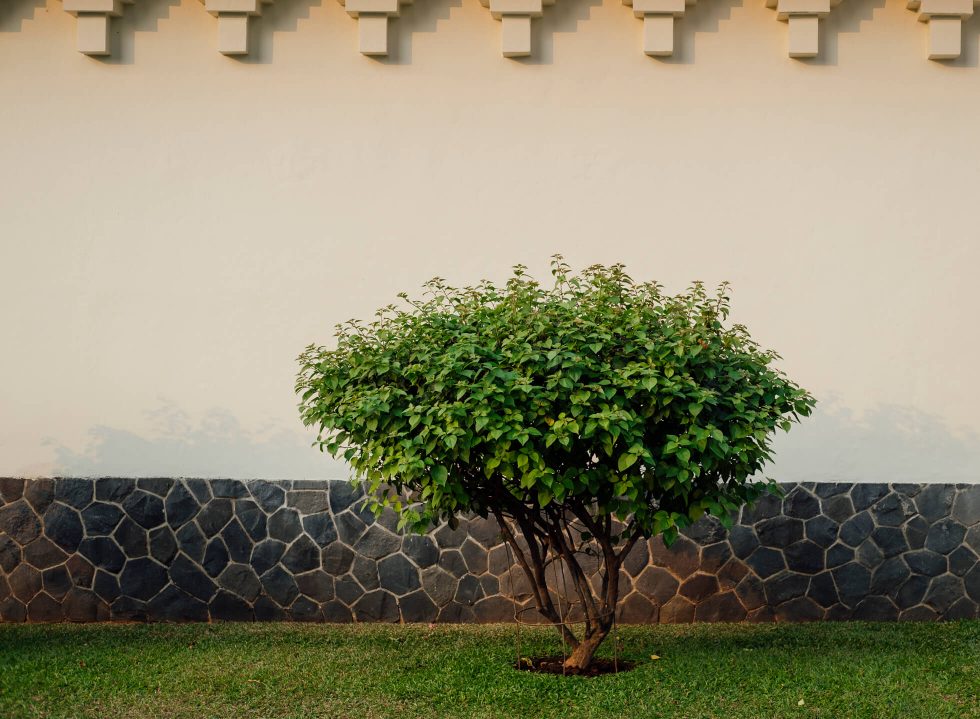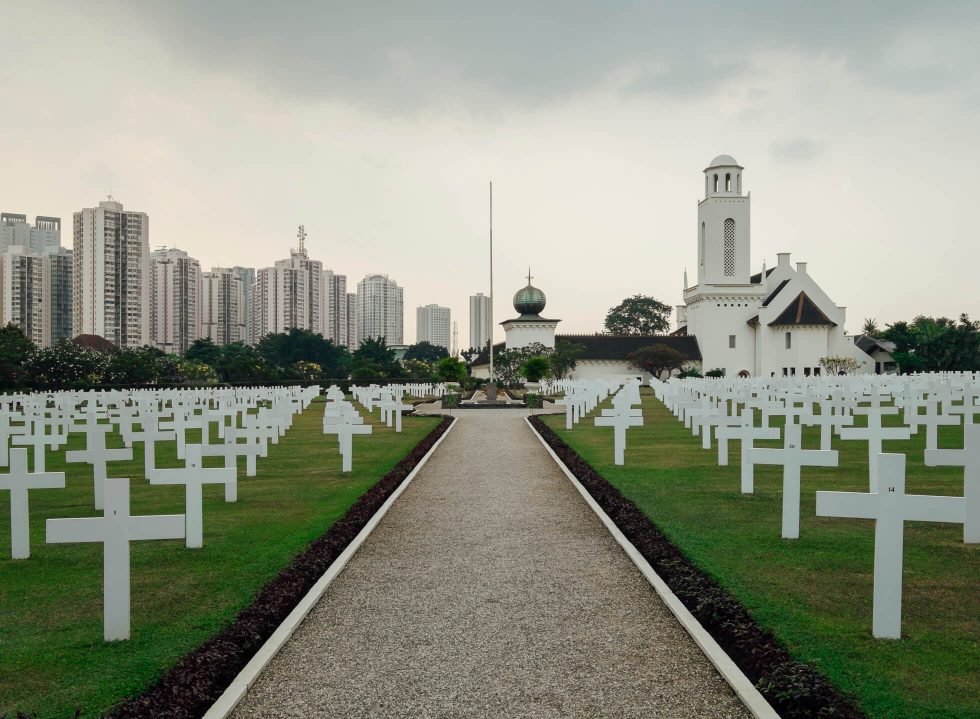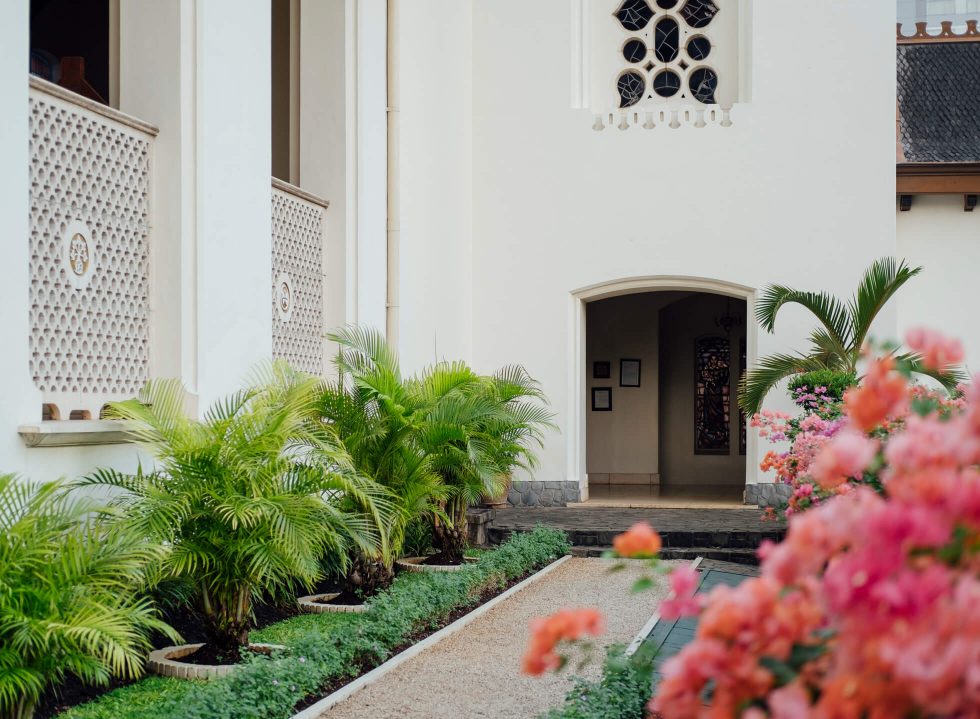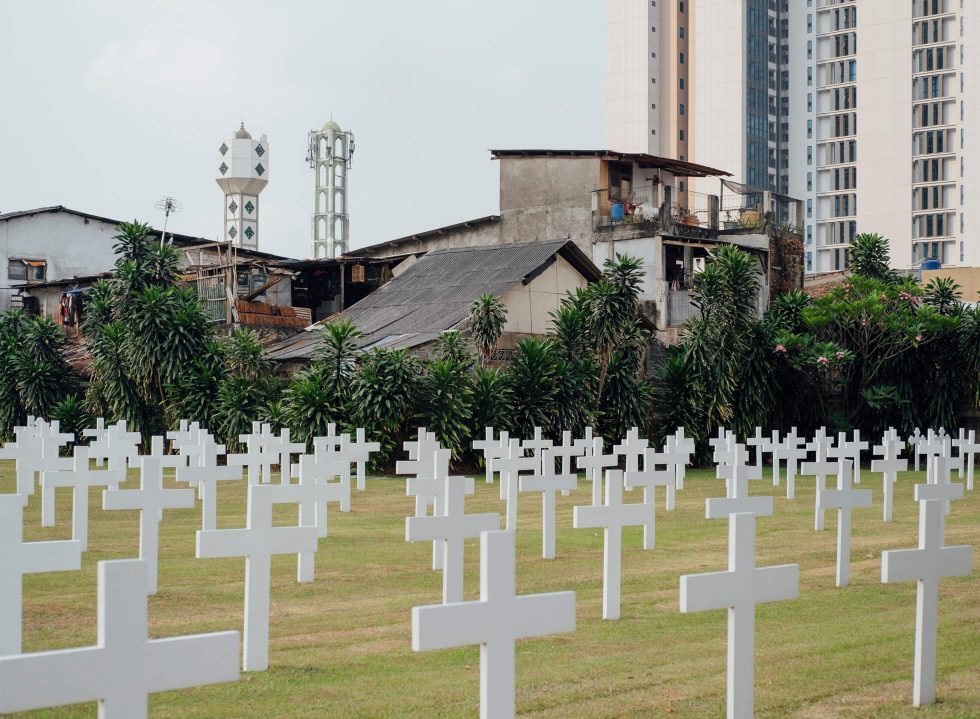Among its shiny skyscrapers, busy roads, and restless inhabitants, many can easily bypass the grounding history that Jakarta holds beneath her grounds. The bustling capital city gallops in a never-ending race towards productivity and success where we, Jakartans, are busy leading the way. For that, even without the intention to forget, Jakarta rarely strikes as historic outside museum walls and other tourist destinations. At Ereveld in Menteng Pulo, a slice of Indonesian history is laid out in shiny white gravestones, brushed with a telling account of the past with picturesque sights to remember.
It’s only nearby residents who live and work in the surrounding tall buildings who are aware of this uncanny site situated in busy Kasablanka. Unbeknownst to many Jakartans, behind these compounds of buildings rests some 4000 souls of many descents lost in past wars and battles that hit the country.
The Ereveld (Makam Penghormatan Belanda) in Menteng Pulo, inaugurated in 1947, is a Dutch war cemetery among the seven others located throughout Java, yet the biggest one. For unforgettable reasons, it’s hard for Indonesians to resist a flinch upon hearing associations to the Dutch. But regardless how grim history was, humanity binds us first and foremost, which Ereveld ultimately reminds us about.
White gravestones stagger the sight. Upon walking the rows and rows of strangers’ names laid out in perfect alignment to each other, senses of humanity creeps in to the realisation that each of these names was somebody to someone. Laid in this final resting place are more than 4000 fallen humans: soldiers of the East Indies Army and civilians alike to the Japanese 1941 war occupation in the height of World War II and battles of the revolution that followed.
One may be compelled to ask unforgiving questions: Why are they here? But war turns a blind eye to who you are and its atrocities will not discriminate. In that respect, Indonesians, Dutch, Chinese men, women and children are laid to rest regardless of faith, race and rank in this cemetery. Every fallen soul from this bit of history is paid respect, for the same struggle they’ve endured was ended with the same fate.
Ereveld is run under Dutch administration of the Oorlogs Graven Stichting (Dutch War Graves Foundation). Gracing the site in Menteng Pulo is the Simultaan Church that now serves Dutch ceremonial events throughout the year. Adjacent to it is the Columbarium where the ashes of more fallen soldiers are kept in tidy rows.
For how cold the history that’s laid to rest here, the cemetery is contrastingly warm with the care and greeneries that bedeck the place. While it may not be one’s first choice of place for an afternoon stroll, visiting the site even once will humble the senses – that war shouldn’t be worth even a dime.
